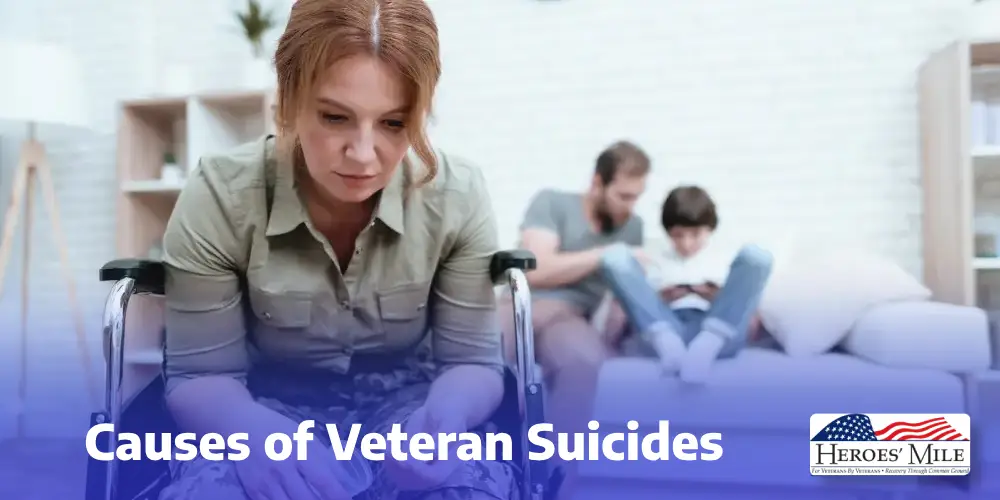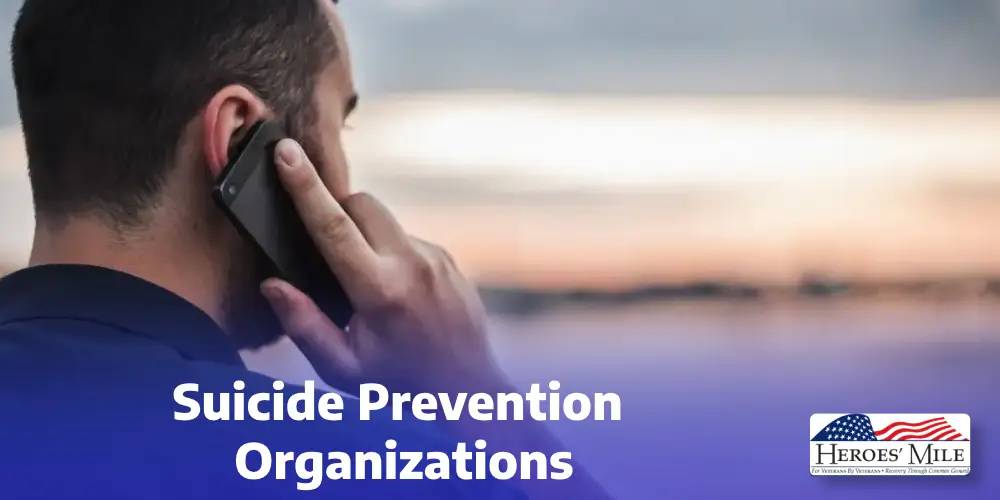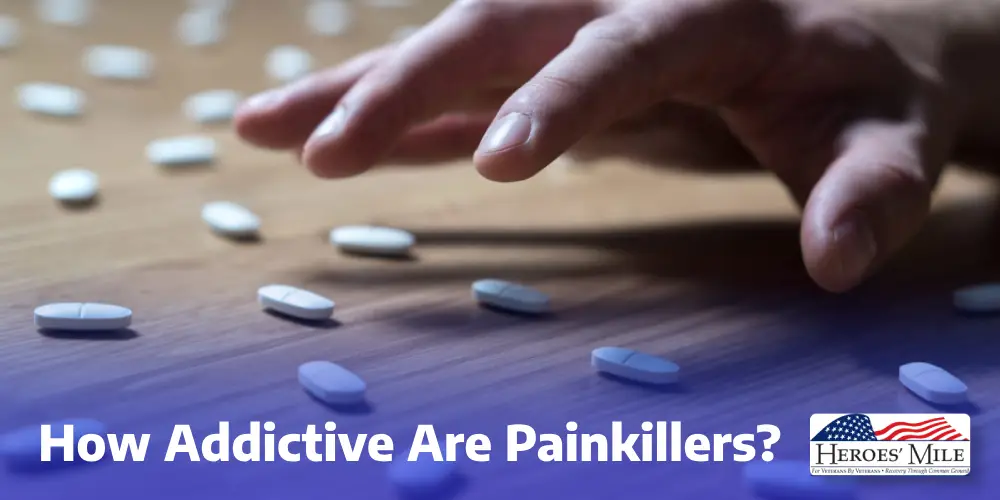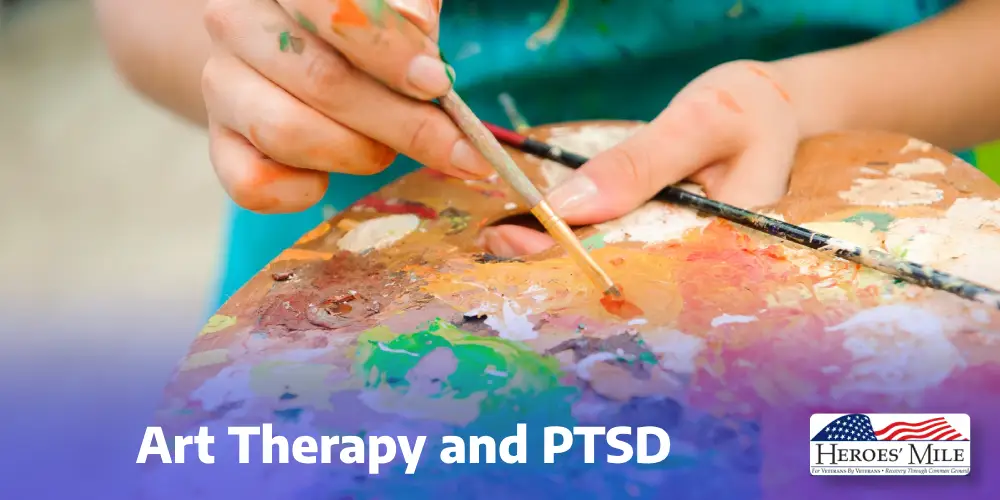September is National Suicide Awareness Month, a period in which individuals are reminded to reach out to those who are at risk of suicide. During this month, mental health professionals and advocates work to prevent suicide, one conversation at a time. This is important work, since the Centers for Disease Control and Prevention (CDC) reports that suicide is the 10th leading cause of death in the United States. And since veterans face trauma regularly, suicide statistics for them can look even worse, especially veteran suicides per day.
The U.S. Department of Veterans Affairs reports that there are an average of 20 veteran suicides per day, and suicide among veterans account for about 14% of all suicides in the U.S. yearly. The correlation between veterans and suicide is strong enough that veterans are twice as likely to commit suicide compared to those who did not serve in the military.
The U.S. Department of Veterans Affairs honors National Suicide Prevention Month as a way to raise awareness about this mental health issue that takes the lives of hundreds of veterans each year in Florida alone. These statistics are shocking, considering that suicide can be prevented with enough awareness and the right resources for those struggling. So why do veterans commit suicide?
Causes of Veteran Suicides

Causes of Veteran Suicides
There are countless factors that contribute to the increasing military suicide rate. Things like combat exposure, injury, struggling to return to civilian life, and military sexual trauma all add to the risk of self-harm and committing suicide. For many people, this leads to coping with drugs or alcohol, which only increases veteran suicide risk.
Substance abuse is deeply connected to higher suicide rates and is one of the major causes of veteran suicides, according to the Substance Abuse and Mental Health Services Administration (SAMHSA). Substance use and co-occurring disorders (i.e., mental health and addiction issues that develop together) are particularly common struggles for veterans, and these can be deadly when left untreated.
A large portion of veterans experience all of these difficulties, and more, as a result of the nature of their careers. In the course of their military service, veterans sacrifice their own freedoms and well-being in order to better serve their country. Even after separating from the service, many veterans find themselves struggling to find motivation and purpose in their lives. This is exactly why having resources in place for veterans to seek preventative and active mental health care is so essential in lowering the veteran suicides per day rate.
How to Lower the Veteran Suicides Per Day Rate
Having the right resources is the most vital piece in giving emotional support to veterans. Learning the signs of mental health issues in veterans, and what resources exist to help veterans struggling with suicidal ideation, is the best thing you can do to help veterans close to you, whether you’re a civilian or a fellow military servicemember.
Know the Signs of Veteran Suicide
Knowing the signs of mental health issues like PTSD or substance abuse that indicate a risk of suicide in yourself or another veteran can be challenging. If yourself, a friend, or a loved one who previously served in the military are struggling with suicidal ideation, it can be a difficult subject to broach. Keeping an eye out for the following mood or behavioral changes can help you identify those in need before they reach a tipping point.
- Feelings of hopelessness, depression, and a lack of motivation or enjoyment for the things in their day-to-day life
- A lowered standard of daily hygiene (e.g., not shaving, showering, or otherwise taking care of their body)
- Making risky, impulsive decisions, especially those that jeopardize their career, personal relationships, or physical well-being
- New or worsening mental illness symptoms, like paranoia, anxiety, feelings of persecution, hallucinations, or delusions
- Uncharacteristic mood swings, irritability, or aggression at seemingly small things
- Misuse of drugs, whether illicit or prescribed, such as alcohol, painkillers, or anti-anxiety medications, in order to deal with emotional stress
The best way to help lower the veteran suicides per day rate is to be aware of the warning signs of veteran suicide. Always seek help right away if you or someone you know is currently unsafe.
Suicide Prevention Organizations

Suicide Prevention Organizations
For veterans contemplating suicide and who are in immediate need of help, there are several veterans suicide hotlines operated by nonprofit charities, such as the Veterans Crisis Line or the Stop Veteran Suicide hotline. Many of these hotlines are staffed by veterans or mental health care professionals who are trained in helping veterans in times of need. Any information shared with them is confidential.
Organizations such as the National Alliance on Mental Illness (NAMI) and the Veterans Crisis Line work to promote suicide prevention all year round. To help raise awareness, suicide prevention organizations also provide a place to share resources and stories about the impact of suicide. The more people who raise awareness about mental health struggles and feel comfortable talking about suicide, the less of a stigma there will be surrounding this deadly issue.
Even if you don’t consider yourself or somebody close to you to be at immediate risk of suicide, using these resources can help veterans understand that there are many others out there going through the same struggle they are, and help them to open up and confront the issues that they are facing. In this way, calling a veteran suicide hotline can actively help lower the veteran suicides per day rate.
Video
How the US can address the tragedy of veteran suicide, Charles P. Smith – TED Talk
Veterans in the United States take their own lives at an alarming rate. Suggesting new ways to prioritize mental health in the military, veterans advocate Charles P. Smith offers a data-driven plan to help prevent suicide and ensure service members get proper care before, during and after active duty.
News Audio
Why proposed solutions to combat the military’s high suicide rate aren’t implemented – NPR
The military has a suicide rate higher than the national average, but many proposed solutions haven’t been implemented. This issue has been studied for more than a decade.
FAQ
What is the significance of Suicide Awareness Month for veterans?
Suicide Awareness Month, observed every September, brings attention to the mental health challenges that veterans face, including the higher risk of suicide compared to the general population.
How many veterans die by suicide each day?
According to the U.S. Department of Veterans Affairs, approximately 17 veterans die by suicide each day, highlighting the urgent need for mental health support and intervention.
What are common risk factors for veteran suicides?
Risk factors include PTSD, depression, substance abuse, social isolation, and difficulty transitioning to civilian life after military service.
What resources are available to help veterans in crisis?
Veterans can contact the Veterans Crisis Line by dialing 988 and pressing 1 for 24/7 confidential support, or reach out to local VA hospitals and veteran support organizations.
How can families and communities support veterans at risk?
Families and communities can help by promoting open conversations, recognizing warning signs, encouraging professional mental health care, and connecting veterans to support services.



